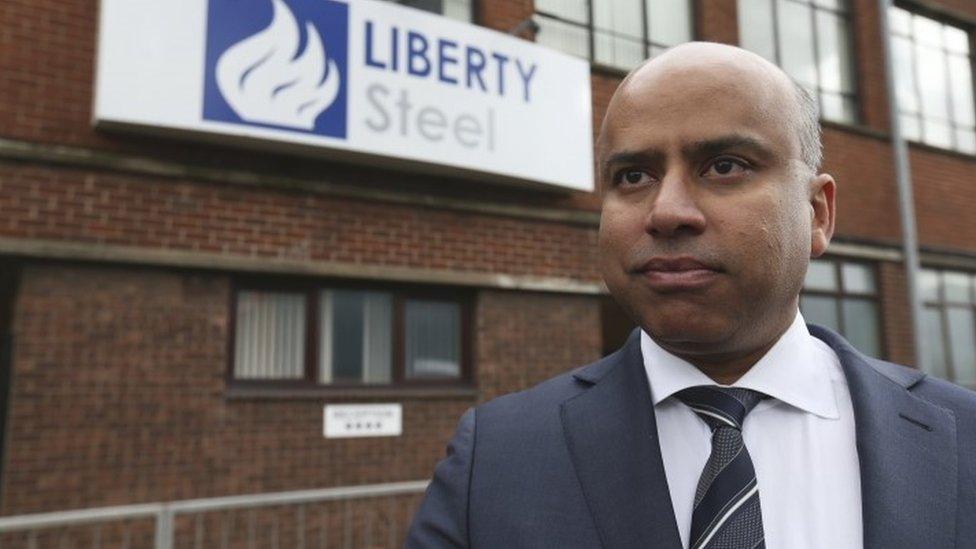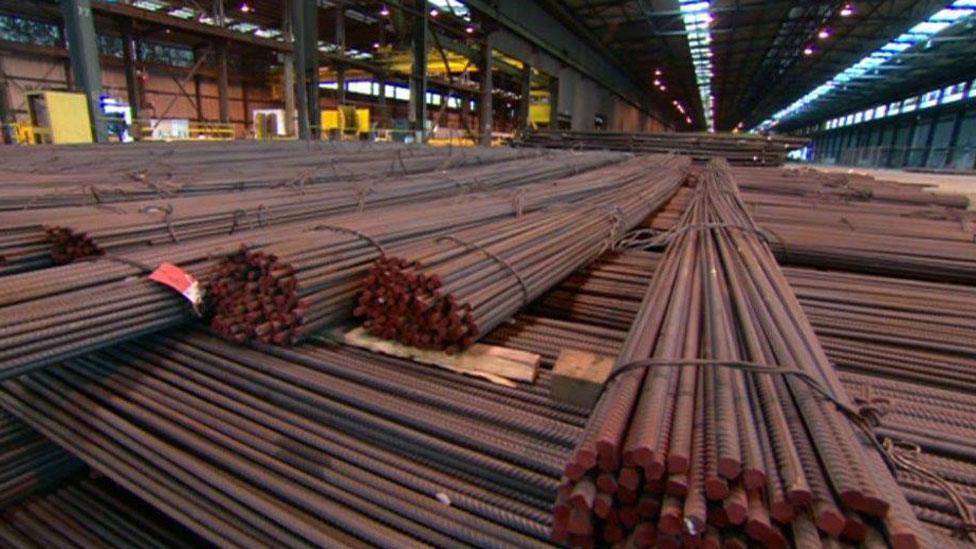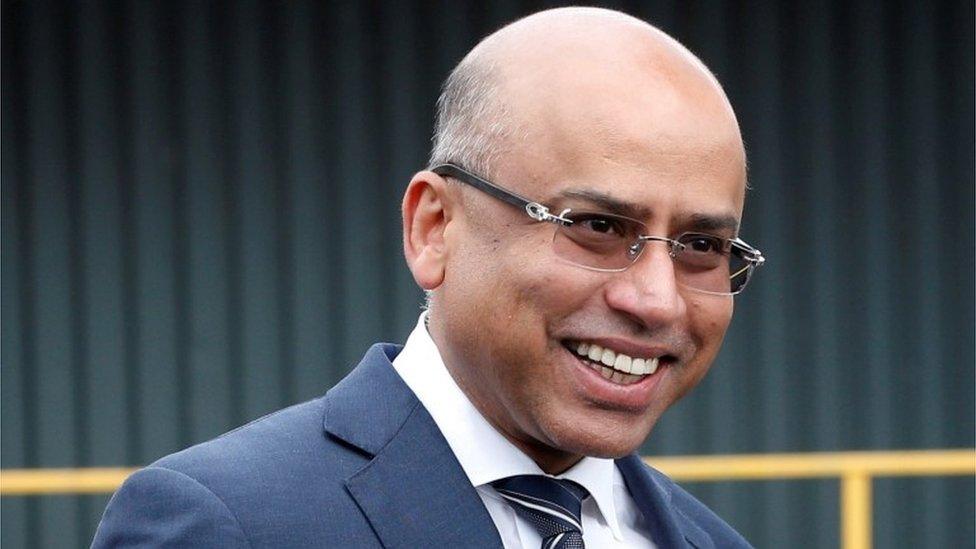Liberty Steel: Government must step in to save steel jobs, says Ed Miliband
- Published
- comments
Nationalise Liberty Steel if necessary, says Miliband
The government should step in to save Liberty Steel, says shadow business secretary Ed Miliband
He said the situation was "urgent and worrying" and nothing should be off the table, including nationalisation, to save thousands of jobs in a key strategic industry.
"These are crucial jobs for communities up and down this country," he said.
Liberty owns 12 steel plants in the UK, including at Rotherham, Motherwell and Newport, and employs 5,000 people.
Mr Miliband told the BBC the plants are "a crucial part of our strategic infrastructure, are crucial for the aerospace sector to automotive. Let's hope that Liberty steel can find that the refinancing that it's looking for but the government needs a plan B to make sure whatever happens, these jobs are saved."
The collapse of the company's main financial backer, Greensill Capital, last week has sparked grave concerns about the future of those jobs.
Mr Miliband said the government needed a to consider every option available to save the company. "If there's one lesson we learned from this pandemic it's that our strategic infrastructure, our resilience really matters. And steel is a key part of our strategic infrastructure and resilience.
"We cannot afford to let these jobs go. Government has got to make sure it doesn't happen."

Liberty Steel is owned by Sanjeev Gupta
Mr Miliband added it was a demonstration of the need for a comprehensive industrial strategy; a strategy he accused the government of abandoning with the recent abolition of the industrial strategy council of senior business leaders.
"We absolutely need an industrial strategy. Because we face such massive challenges as a country like the green transition, we have to undertake. And we can only do that without proper partnership between public and private sectors. Now, that does mean a clear roadmap, government showing the direction which is going, it also means public finance."
Speaking to The Times, external, the Business Secretary, Kwasi Kwarteng, hinted that the government could intervene in the Liberty Steel crisis.
"We have done in the past. I think Liberty Steel is consonant with our decarbonisation agenda. I think it's a fundamentally good product... I can't anticipate or guarantee forms of intervention.
"The management has their own plan as well and I've got to see how that works out."
Deep frustration
On Tuesday, the government announced a plan to cut industrial carbon emissions by two-thirds by 2035 - allocating a billion pounds of money announced in the government's ten point plan to hit net zero by 2050.
Its strategy for fostering private investment in offshore wind is a roaring success and we have just witnessed the largest state intervention in the private sector outside of wartime.

Business Secretary, Kwasi Kwarteng, hinted that the government could intervene in the Liberty Steel crisis
I asked Mr Milliband whether the Labour Party had been outflanked on green investment and state intervention? He unsurprisingly disagreed.
"We're generating the offshore wind here but we're not manufacturing many turbines here, the world leader is Denmark. Why are they the world leader, because they have a proper industrial strategy, where government is willing to put its might alongside the private sector behind it.
"Businesses are deeply frustrated, angry even, that the government has torn up the work that was being done on an industrial strategy. If the government doesn't want to have one, we'll have one. Because we know we've got to work with business on the challenges we face."
He insisted that the people who presided over the last ten years were unlikely to be able to deliver transformation over the next ten years - and Britain was falling behind the US, France and Germany on investment.
Many businesses do indeed say they liked the old industrial strategy - the sector deals that made them feel the government was holding their hand while setting big policy targets. Some feel we have destinations but no detailed map. But it is also true that the government has a trump card to play in this debate - and we can expect them to play it often.
Labour's dilemma
Ministers and officials point to the vaccine response as an exemplar of how the public and private sector can work together successfully. They also use it as an example of how a government freed from the meeting rooms of Brussels can be nimble when required.
When asked what the UK will do with its supposed new found freedoms, insiders will find it difficult to make a list but would point to the vaccine success of "knowing it when you see it".
That argument works less well of course on the government's PPE procurement and the eye watering sums poured into test and trace.
The government insists it does have an industrial strategy - it just doesn't want to call it that. It prefers a "plan for growth", "build back better" - and it prefers its run by Number 10 and the Treasury rather than the Department for Business. It also says it is monitoring the Liberty Steel situation very closely.
Labour's dilemma perhaps is that it has never had to fight against a conservative party in a situation like this. Unprecedented intervention in the private sector, running a huge budget deficit and choosing to pay for some of it with a whopping hike in business taxes in 2023.
It's been a strange year for everyone.
Related topics
- Published9 March 2021

- Published9 March 2021

- Published8 March 2021
